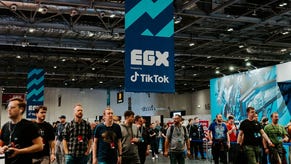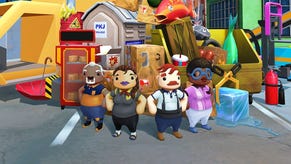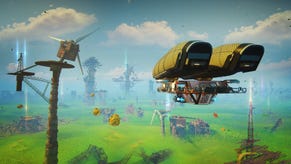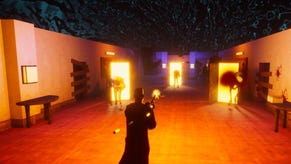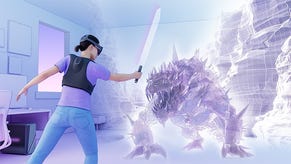It's harder to release a game now - Cliff Harris
Rising advertising costs, discoverability getting worse, says Gratuitious Space Battles dev
Last week, Cliff Harris' Positech Games launched Gratuitous Space Battles 2 on Steam. It was the first full game the developer had launched on Valve's storefront since 2013's Democracy 3. Over the weekend, he posted a blog entry with his takeaways about how the experience of launching a game has changed in that span of time.
"Holy fuck, it's got harder," Harris concluded.
Much of the stress surrounding the experience was familiar for Harris. He likened it to having a year-and-a-half's worth of income riding on a roulette wheel that will keep spinning for weeks or even months before you find out if you won. So far, Harris said the launch has gone "OK." The game has landed in the Steam sales charts and there's already some user-generated content in the Steam Workshop, but it has yet to break even.
Chief among Harris' takeaways is a bit of perspective on just how many games are out there competing for people's attention.
"There are so many games, the media (including YouTubers/Twitch streamers) won't care that you released a new game without real hand-waving and pleading," Harris said. "Just being a good, quality game isn't going to cut it anymore. Unless your game has a famous actor in it, or is hilariously weird in its premise, or has some other non-game related 'hook' for the press to get excited about it, you can forget it. I hate worrying about all that. I'm a coder at heart, and this is meaning it's getting tougher for me."
Beyond that, Harris said the cost of advertising has increased in recent years, whether you're talking about a full site takeover or even Facebook and Google AdWords promotions. That problem is compounded by the intense downward price pressure in the industry right now. It's keenly felt by Harris, who is charging $25 for Gratuitous Space Battles 2.
"People moan that the price is too high, then say they only ever buy games at 50 percent off," Harris said. "There may be some logic there but I can't quite see it myself. Every game I've ever released on Steam has had a thread saying its cost too much. I suspect every game on Steam has that thread. I suspect it's the same posters too."
Finally, Harris said Steam users generally don't leave reviews unless they had a problem with the game. As of this writing, Gratuitous Space Battles has 33 positive reviews on Steam, and 25 negative ones.
Even though the experience as a whole has grown more difficult, Harris did find cause for optimism.
"I'm guessing things are a bit quiet because [the PC version of Grand Theft Auto V] just came out, and it just started getting nice weather," Harris said. "Games are a long tail phenomena these days. GSB1 made 1 percent of its total earnings to date in its first week on sale. By that measure GSB2 is going to do well. Fingers crossed, anyway."



